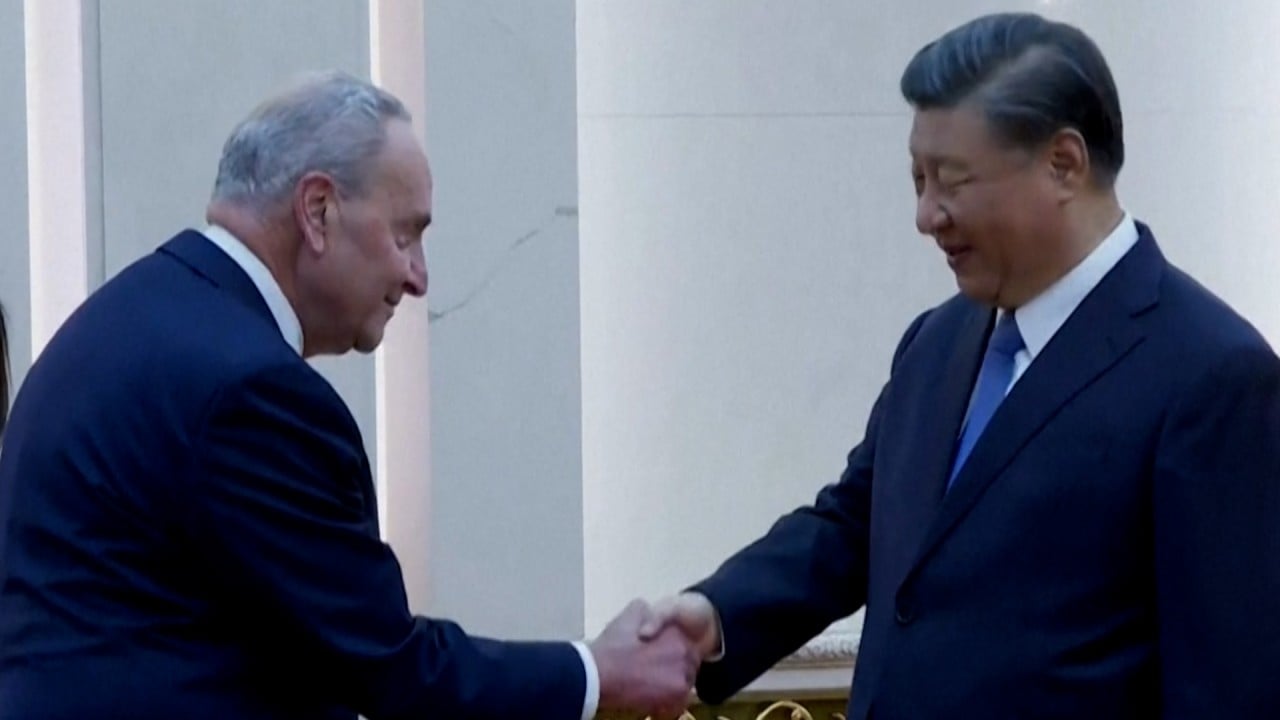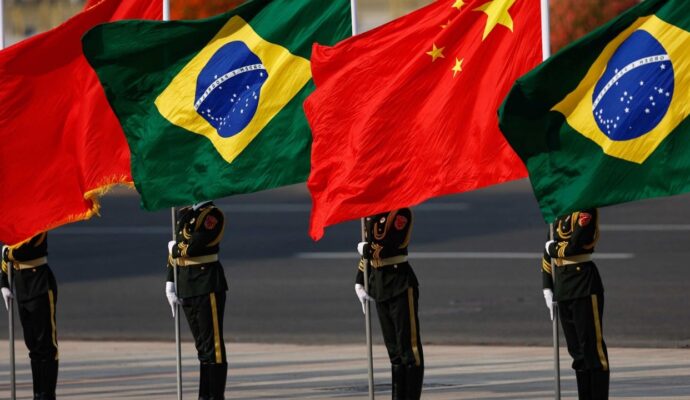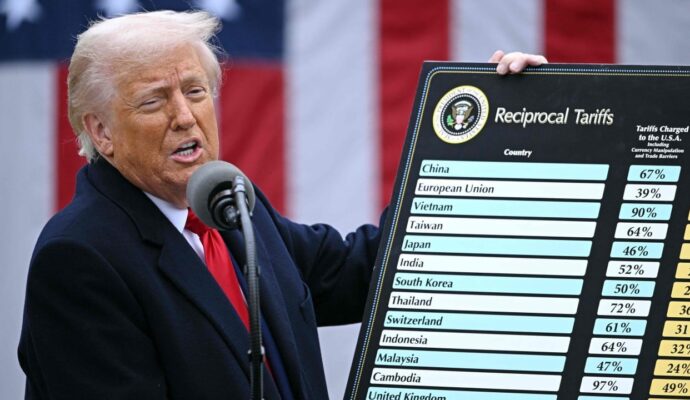“The US should abandon its aggressive Cold War and aggressive mindset, fix the ‘action deficit’ with practical actions and concrete policies, and increase strategic mutual trust,” the piece read.
Beijing has confirmed that the Xi-Biden talks will take place on the sidelines of the Asia-Pacific Economic Cooperation summit to be held in San Francisco on November 14-17.
Bilateral dialogue on economic and diplomatic affairs have been stepped up in the run-up to the meeting as both sides try to prevent relations from derailing after a spike in tensions.
The post-pandemic global economic recovery, climate change battle and need to address geopolitical conflicts demanded cooperation between the world’s top two economies, said the People’s Daily commentary by Zhong Sheng – a homonym in Chinese for the “voice of China”.
“Positioning China as ‘the most important competitor’ and ‘the most significant geopolitical challenge’ is irresponsible and cannot address problems,” it added.
Further increases in daily two-way flights and a crackdown on fentanyl production were also likely, although differences remained over the war in Ukraine and the South China Sea, the earlier report said.
However, the hi-tech sector and Taiwan remain key thorny issues that have largely determined the trajectory of bilateral ties.
Taiwan in particular has been a flashpoint, with Beijing holding to its non-negotiable position on what it considers breakaway territory to be reunified by force if necessary. While the US does not regard Taiwan as independent, it has kept up arms sales and government-to-government contact with the self-ruled island, sparking fury from Beijing.
Frank Taiwan talks at Xi-Biden summit will go long way to ease ties: ex-US envoy
Frank Taiwan talks at Xi-Biden summit will go long way to ease ties: ex-US envoy
Last week, Chinese ambassador to the US Xie Feng urged Washington to stop “playing with fire” on Taiwan and take “concrete actions” to manage differences with Beijing.
US warships also regularly make “freedom of navigation” voyages through the Taiwan Strait and in the South China Sea.
Further, despite the US declaring that it would not seek decoupling from China, it has continued to squeeze Chinese access to advanced hi-tech products and restrict American investment in Chinese technology sectors, citing national security concerns.
While in San Francisco for the Apec meetings, Biden is also expected to host a summit of the US-led Indo-Pacific Economic Framework (IPEF). The 14-member economic cooperation mechanism, which includes South Korea, Japan and India, is widely seen as an effort to exclude China from key supply chains.
South Korean President Yoon Suk-yeol will attend the IPEF summit in San Francisco, Yonhap News Agency reported on Sunday.




